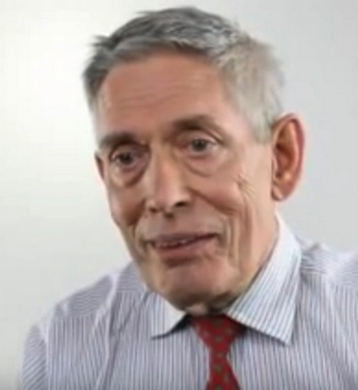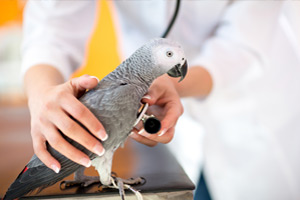International Association for Veterinary Homeopathy (IAVH)
The IAVH is the International Association for Veterinary Homeopathy. It was founded in 1986 with the goal to preserve and to develop the knowledge, understanding and use of homeopathy in animals.
We have members in the following 36 countries:
Argentina, Australia, Austria, Belgium, Brazil, Canada, Colombia, Cyprus, Czech Republic, Denmark, Estonia, Finland, France, Germany, Greece, Hungary, Ireland, Israel, Italy, Latvia, Japan, the Netherlands, New Zealand, Russia, Serbia, Slovenia, South Africa, South Korea, Spain, Sweden, Switzerland, Thailand, Turkey, United Kingdom, the USA, and Uruguay.
IAVH-SVHD International Homeopathic Veterinary Congress, Izola, Slovenia, April 20-21, 2024
Please see the April calendar entry for more details. Come join us!
Chris Day, Beloved UK homeopath, worldwide teacher and IAVH co-founder, has passed away
Chris inspired many many developing homeopaths throughout the world with his kindness and leadership.
Longtime IAVH member and IAVH co-founder Jacques Millemann has died.
Jacques Millemann, co-founder of the IAVH and a teacher, friend, and supporter, passed away July 28, 2021
And welcome to homeopathy, the modern, scientific medicine which is not new, not changing every few years, where the scientific principles underlying homeopathic practice have not changed for over two hundred years. In fact, during these two centuries, homeopathic physicians and veterinarians have utilised these medical theories successfully time and time again. We see that the original principles, as espoused by Samuel Hahnemann, have been refined by subsequent generations of practitioners, but they still remain as true today as when they were first written. The foundation of homeopathic medicine is solid.
In an era when modern medicine is thought to make much progress, more and more animal guardians and caretakers are realising something is missing in the way we treat our animals. This is one farmer’s experience (We’ve changed his name to Mark): Mark had been thinking about starting to learn to use homeopathy on his farm for some time. He had talked about it to vets, colleagues and ‘other people in the know’ and was always told it was a waste of time. One day a farming colleague told him how well homeopathy worked on his farm, so Mark decided to go on a course and learn about homeopathy for himself. After starting to use it on his farm his comments were as follows: ‘Homeopathy is MASSIVE and it is double advantaged, it gives me a better price for my milk and saves me £2000 a year in vet and medicine costs’’. He went on "I am actually angry with the medical profession, with science; every time I looked at it they told me it was rubbish, then I talked to another farmer and he said he used it, so I tried it. I am angry with them, they held me back, I am ten years behind.’

Unfortunately, however, when someone proposes homeopathy as an alternative approach, many may well frown or even argue against its use, as this farmer experienced. The reason for this is usually that they lack any knowledge or experience of using homeopathy. In some cases it may even be that they just prefer homeopathy to be ineffective because it would otherwise challenge their vision of medicine, and perhaps even their worldview.
The fact that the international scientific community is waking up to the issue of anti-microbial resistance is a strong justification for asking whether there are any ‘other and better options’ for practising medicine. Whereas many believe that the solution to anti-microbial resistance is to develop new anti-microbial drugs, or even vaccines, there is also a realisation that we should search for better alternatives rather than simply pursuing the same short-term solutions. And as homeopathic medicines work by strengthening immune responses in sick individuals, they do not depend upon anti-microbials, and there is no possibility of resistance, no possibility of creating “superbugs.”
Still, there are many who argue that homeopathy does not work, even cannot work because current theories do not always explain its effects. There is a lot of scientifically sound evidence, however, that homeopathy does indeed work. The real scientist looks at the data, and the data is there: homeopathy makes a difference more than placebo (see the research tab in this website). And millions of patients through two centuries provide even stronger evidence.
Besides the scientific debate, those who investigate homeopathy as practised by qualified homeopathic practitioners soon realise the potential of this type of medicine. It is often their personal experience with homeopathy that convinces them about the possibilities and power of the 'little drops or pills'. And it is not only the efficacy of a well prescribed homeopathic remedy that is convincing—it is also the respectful attention given to the patient's individuality. In homeopathy, the patient is not simply a statistic—each patient is seen as a unique being and therefore given the individual attention required for a return to health: homeopathic medicine comes with an ethos where the patient is absolutely central to therapy.
Homeopathy is very much a modern medicine, in fact ahead of its time—the first scientifically based studies of medicines were carried out on homeopathic medicines. And homeopathy has the ability to touch the patient's deepest self, helping them to return to good health. This is medicine of the future, available now! It can do this not only for one individual, but also for a group of animals suffering from the same disease—and it does this in a non-toxic way without depleting natural resources. Homeopathy is scientific, natural, effective, and environmentally friendly. What can be better than this?
The possibilities of homeopathic medicine are endless: we are only just discovering what is possible.
Welcome to the future! Welcome to homeopathy!
Former IAVH President Edward De Beukelaer and others respond to a recent Veterinary Record article which attempts to dismiss homeopathic medicine
Over the past few years, a number of loud but poorly informed veterinarians in the United Kingdom have carried out a misinformation campaign against veterinary homeopathy. One more instance of this occurred recently, when the Veterinary Record published a two-part article, entitled "Comparison of veterinary drugs and veterinary homeopathy." While the article is written as if it is based upon science, in fact the entire basis of their "proof" against homeopathy is that it cannot work as we don't understand how it could work (at least according to Newtonian physics).
Of course, Galileo was excommunicated and imprisoned for saying that the earth revolves around the sun, but in the end he was proven correct. And many physicists resisted theories of quantum mechanics until this also was shown to be true.
Just because we cannot yet understand the mechanism by which homeopathic medications work does not imply they cannot work.
The Veterinary Record articles are more political than scientific or medical.
Dr. De Beukelaer crafted and signed a letter to the Editor in response, along with Drs. Hélène Renoux, President of the European Committee for Homeopathy, Ton Nicolai, spokesperson for EUROCAM, and Alexander Tournier, Executive Director of the Homeopathy Research Institute.
You can download the letter to the Editor of Veterinary Record here: IAVH/ECH/Eurocam Letter to Veterinary Record
Additionally, there are translations of the letter available in German and Italian: Deutsch (PDF download), Italiano (googledocs link)
The editors of Veterinary Record have not published similar letters from IAVH or anyone else in response to previous articles. However, as of December 2017, they did publish the current IAVH response letter, for which we are grateful.







